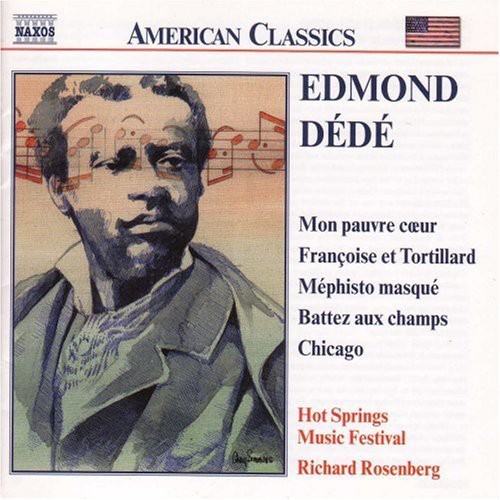Show results for
Deals
- 4K Ultra HD Sale
- Action Sale
- Alternative Rock Sale
- Anime sale
- Award Winners Sale
- Bear Family Sale
- Blu ray Sale
- Blues on Sale
- British Sale
- Classical Music Sale
- Comedy Music Sale
- Comedy Sale
- Country Sale
- Criterion Sale
- Drama Sale
- Electronic Music sale
- Golden Age of Hollywood sale
- Horror Sci fi Sale
- Kids and Family Sale
- Metal Sale
- Music Video Sale
- Musicals on Sale
- Mystery Sale
- Naxos Label Sale
- Page to Screen Sale
- Paramount Sale
- PBS on Sale
- Rap and Hip Hop Sale
- Reggae Sale
- Rock
- Rock and Pop Sale
- Rock Legends
- Soul Music Sale
- TV Sale
- Vinyl on Sale
- War Films and Westerns on Sale

Edmond Dede
- Format: CD
- Release Date: 3/14/2000

Edmond Dede
- Format: CD
- Release Date: 3/14/2000
- Conductors: Richard Rosenberg
- Performers: Brandon Brack, David Sachs, Jennifer Foster, Kabin Thomas
- Label: Naxos American
- UPC: 636943903827
- Item #: NAX390382
- Genre: Classical
- Release Date: 3/14/2000

Product Notes
Edmond Dédé was born free in New Orleans on 20 November 1827. His parents were free Creoles of color who had immigrated to New Orleans around 1809 from the French West Indies. His father became chef de musique of a local militia unit and was the boy's first professor. Dédé's first instrument, as befitted the son of a bandmaster, was the clarinet, but he soon developed into a violin prodigy. He studied violin with Constant in Oebergue, a local free black violinist and director of the local Philharmonic Society founded by free Creoles of color sometime in the late antebellum period, and with Italian-born Ludovico Gabici, director of the St Charles Theater orchestra and one of the earliest publishers of music in the city. He studied counterpoint and harmony' with Eugene Prevost, French-born winner of the 1831 Prix de Rome and conductor of the orchestras at the Theatre d'Orleans and the French Opera of New Orleans, and with New York-born free black musician Charles Richard Lambert, father of Sidney and Lucien Lambert, and a conductor of the Philharmonic Society, which was the first non-theatrical orchestra in the city and even included some white musicians among it's one hundred instrumentalists, an extremely large aggregation for the time.

